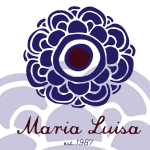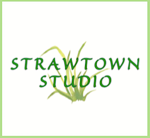by Susan Hellauer
Maybe you’re a turkey-pardoning vegetarian, or maybe you dove into that Thanksgiving bird without remorse. Either way, this weekend seems like a good time to think about our feathered friends.
They’re right there for us—ducks, geese, and swans at the riverbank or lake shore—when we want our kids to see some wildlife up close, without a pricey trip to the zoo. What better way to thank them—and get them to “perform” for us—than with a bag of day-old bread from the supermarket.
But what seems like harmless fun can lead to a crippling deformity and death sentence for wild waterfowl, and will endanger them in several other ways as well.
Angel wing disease
Who’s to blame for angel wing disease? “Helpful” humans and their bags of bread.
All young birds, including waterfowl, grow very quickly, and any interruption in their densely nutritious diet of bugs, fish, snails, seeds and plants will cause their development to outstrip their intake. Human “junk” food, like bread, crackers and popcorn, ingested at the wrong time in a bird’s life, will cause wing bones to form abnormally, pointing away from the body.
Wildlife rehabilitation centers, like this Humane Society facility on Cape Cod, find and treat some lucky birds with angel wing disease, but most of those afflicted receive no help. Without the ability to fly, they can’t evade predators or escape bad weather, and only rarely will survive to adulthood.
“A fed animal is a dead animal”
This bleak motto is popular with park rangers, who promote a “Keep Wildlife Wild” attitude toward the animals under their care.
In addition to angel wing disease, habituation to human food causes a number of problems for the wild animals. Those that begin to seek human food (and it apparently takes just one exposure to tip the behavior) will fight, congregate, and become easy targets for predators. And any wild animal that loses its fear of humans can easily get into life-threatening situations.

Geese feed naturally at Rockland Lake State Park
Artificial feeding of waterfowl draws rats to the shoreline, which becomes fouled with bird droppings and food waste. The birds then end up eating in the filthy water, which wouldn’t happen under natural conditions. Disease spreads easily where birds feed in a crowd, and an entire population can be quickly wiped out by one virulent bug.
Some invasive species, however, without natural predators and with a steady artificial food supply, can overrun an area, causing unsanitary conditions. The overpopulation of Canada geese at Rockland Lake State Park—and other parks, campuses and golf courses in our area—leaves its mark with acres of slimy droppings.
If it’s not a good idea to feed wild waterfowl, what about backyard bird feeders? Experts are divided on wild bird feeding at home, says Alan Wells, Ph.D., webmaster of the Rockland Audubon Society.
“Feeding can provide food during critical periods of shortage,” like late winter and early spring, when natural foods are pretty much depleted, says Wells.
But even in the backyard, the bad reasons can outweigh the good. Bird feeders can attract unwanted animals and encourage the spread of disease through close contact. “A few years ago, with the spread of conjunctivitis among the House Finch population,” says Wells, “about half of the east coast population was killed . . . Make sure your feeders are sterilized frequently.”
“It is not harmful if done responsibly and with good quality food,” and never with bread or any human food, according to Wells, which can cause angel wing disease and other problems.
A respectful distance
Keeping wildlife wild is key for their safety, survival and population control. If you get close enough to some wildlife to make them move away, you’re too close, according to park rangers, who ask visitors to keep a safe and “respectful distance” from all wild animals.
Many of our local waterfowl, however, are already habituated, and will approach humans who seem to offer food. It can be hard to resist the urge to reward them, especially if your little ones are used to this kind of entertainment. But if you want to prevent angel wing disease, you’ll need to learn another way.
“Kids want to touch, or even throw rocks at the birds to make them move,” says Laurie Seeman, director of Strawtown Studio in New City. She and her staff lead art-in-nature workshops year round, and interact with wildlife in a safe, respectful way. “The activity is to learn to keep hands to self and to learn to be able to see really keenly. Children do benefit from nature program teachings, where modeling of wildlife interaction happens. Family modeling works the same way.”
So, next time you’re at the waterfront and the ducks and geese swim toward you for a handout, don’t feed—just observe and enjoy, to keep them safe.
And remember, except for that Thanksgiving stuffing, bread and birds simply don’t mix.
Learn more:
NY State Department of Environmental Conservation on waterfowl feeding
NatureMuseum.org museum blog on angel wing disease
American Humane Society on waterfowl feeding
Nyack Village website on angel wing disease
Featured image: mallard duck with angel wing disease. Photo: Tony Alter Creative Commons 2.0, via Wikimedia Commons
Sustainable Saturdays, a weekly feature that focuses on conservation, sustainability, recycling and healthy living, is sponsored by Green Meadow Waldorf School, Maria Luisa Boutique and Strawtown Studio.











